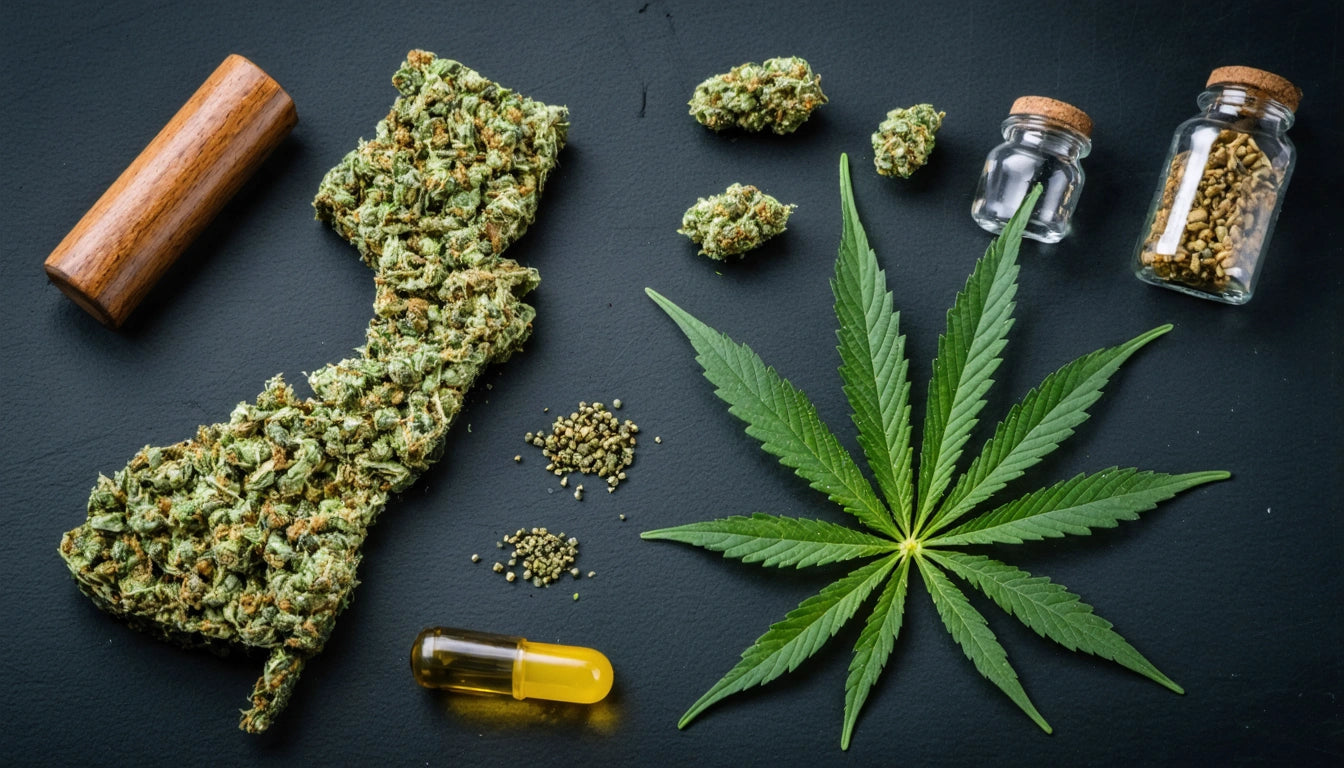Table of Contents
- Qualifying Medical Conditions for Medical Marijuana
- Age Requirements for Medical Marijuana
- State-Specific Qualifications and Requirements
- The Application Process for Medical Cannabis
- Doctor Requirements and Recommendations
- Mental Health Conditions and Medical Cannabis
- The Future of Qualifying Conditions for Medical Cannabis
Qualifying Conditions and Requirements for Medical Marijuana
Medical marijuana programs exist across the United States with varying requirements and qualifying conditions. Understanding what qualifies you for medical marijuanas can be challenging as regulations differ by state. This guide covers the common qualifying conditions, age requirements, and application processes to help patients navigate the medical cannabis landscape.
Qualifying Medical Conditions for Medical Marijuana
While qualifying conditions vary by state, several medical conditions are commonly accepted across most medical marijuana programs. Understanding medical weed uses starts with knowing which conditions typically qualify:
- Chronic pain
- Cancer and cancer treatment side effects
- HIV/AIDS
- Multiple sclerosis
- Epilepsy and seizure disorders
- Glaucoma
- Crohn's disease and inflammatory bowel diseases
- Post-traumatic stress disorder (PTSD)
- Amyotrophic lateral sclerosis (ALS)
- Parkinson's disease
- Terminal illnesses
Some states have more extensive lists that include conditions like fibromyalgia, autism, and Alzheimer's disease. Others have provisions for "debilitating conditions" that significantly impact quality of life, giving doctors discretion in their recommendations.
Age Requirements for Medical Marijuana
The question of how old do you have to be for medical weed is straightforward in most states. Typically, patients must be 18 or older to qualify independently for a medical marijuana card. However, minors can access medical cannabis in most states through a caregiver system, usually requiring:
- Parent or legal guardian consent
- Parent or legal guardian registration as a caregiver
- Often, approval from multiple physicians
- Sometimes, restrictions on product types (e.g., non-smokable forms only)
Caregivers are responsible for purchasing and administering medical cannabis to minor patients. They must meet state-specific requirements, which often include background checks and residency verification.
State-Specific Qualifications and Requirements
What qualifies for medical weed in one state may not qualify in another. Medical weed legalization varies significantly across states, affecting both qualifying conditions and program requirements.
For example, New York and Pennsylvania have relatively expansive lists of qualifying conditions, while states like Texas have much more restrictive programs limited to specific conditions like intractable epilepsy. Some states have added anxiety disorders to their lists, while others specifically exclude them.
Residency requirements also vary. Most states require proof of residency to obtain a medical marijuana card, though some have reciprocity agreements that honor out-of-state medical cards for visitors.
The Application Process for Medical Cannabis
Learning how to qualify for medical cannabis involves understanding the application process, which typically follows these steps:
- Confirm you have a qualifying condition in your state
- Gather medical records documenting your condition
- Find a qualified healthcare provider who can recommend medical cannabis
- Obtain a written recommendation or certification
- Complete state application forms
- Pay application fees (typically $50-$200)
- Submit to background checks if required
- Receive your medical marijuana card (usually within 2-4 weeks)
Most states require annual renewals, which involve similar steps and fees. How to obtain a medical marijuana card varies by state, so checking your state's specific requirements is essential.
When storing your medical cannabis at home, it's important to keep it secure and fresh. Many patients use specialized containers with child-resistant caps for their medicine jars to maintain potency and comply with safety regulations.
Doctor Requirements and Recommendations
Not all doctors can recommend medical marijuana. Understanding which doctors can prescribe medical marijuana is crucial to the qualification process.
Typically, doctors must:
- Be licensed in your state
- Register with the state's medical marijuana program
- Complete specific training on medical cannabis
- Have an established doctor-patient relationship with you
Doctors cannot technically "prescribe" cannabis since it remains federally illegal. Instead, they provide "recommendations" or "certifications" that patients qualify for medical cannabis based on their condition.
Mental Health Conditions and Medical Cannabis
Questions like "can you get medical weed for ADD" reflect growing interest in cannabis for mental health conditions. The answer varies by state:
- Some states specifically list anxiety, PTSD, and other mental health conditions
- Others allow for "debilitating conditions" that could include mental health under physician discretion
- Some explicitly exclude certain mental health conditions
While research on cannabis for mental health is ongoing, some patients report benefits for conditions like anxiety, ADHD, and depression. However, it's important to note that cannabis can sometimes worsen certain mental health symptoms, particularly in high-THC formulations.
Understanding the differences between medical and recreational marijuana is important, as medical programs often provide access to different products, higher potency options, and tax benefits compared to recreational markets.
The Future of Qualifying Conditions for Medical Cannabis
As research advances and societal attitudes shift, what qualifies you for medical weed continues to evolve. Many states have added conditions to their qualifying lists over time as evidence for cannabis benefits grows. Some trends shaping the future of qualifying conditions include:
- Expansion to include more mental health conditions
- Addition of chronic conditions like fibromyalgia and migraines
- Greater physician discretion in making recommendations
- Potential federal rescheduling that could standardize qualifying conditions
For those wondering what disabilities qualify for medical marijuanas, the landscape continues to expand. Patients with qualifying conditions should consult with healthcare providers knowledgeable about cannabis medicine to determine if medical marijuana might be appropriate for their specific situation.
Understanding your state's specific requirements for medical cannabis is the first step toward accessing this treatment option legally and safely. As regulations continue to evolve, staying informed about changing qualification requirements ensures patients can navigate the system effectively.











Leave a comment
All comments are moderated before being published.
This site is protected by hCaptcha and the hCaptcha Privacy Policy and Terms of Service apply.